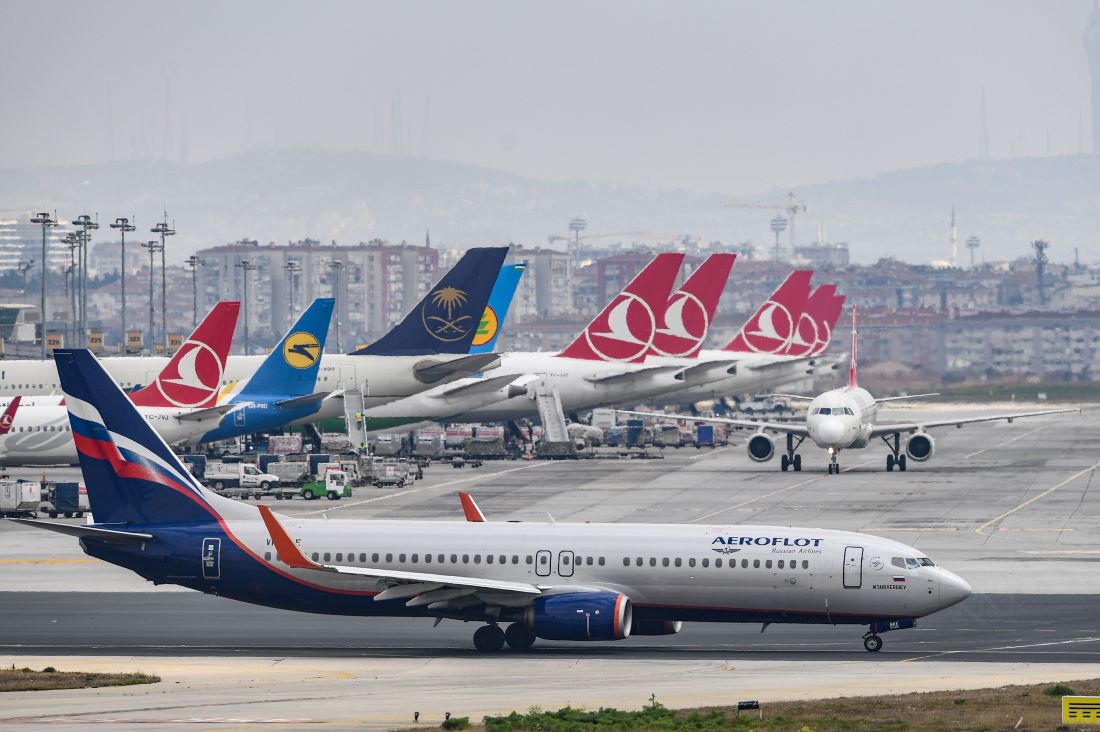SOURCE: AFI


In the wake of Russia’s invasion of Ukraine in February 2022, Western sanctions slammed the brakes on Russia’s access to critical aviation resources, targeting its airlines with restrictions on aircraft and spare parts from industry giants Boeing and Airbus. The intent was clear: cripple Russia’s aviation sector, a vital artery for its economy and connectivity.
Yet, nearly three years later, Russian carriers like Aeroflot and Ural Airlines are keeping their Western-built fleets aloft, thanks to a shadowy workaround involving Indian intermediaries. A recent report from Investigate Europe has pulled back the curtain on this sanctions-evasion scheme, revealing how India has become an unlikely knight in Russia’s aviation survival story—albeit a black knight cloaked in secrecy.
The mechanism is deceptively simple. Indian companies purchase aircraft parts from Western manufacturers under the pretense that the goods will remain in India. Instead, these components are swiftly rerouted to Russia, bypassing sanctions that prohibit direct sales to Russian entities. Investigate Europe’s analysis of customs data up to September 2024 shows that over $50 million worth of parts—including valves, fasteners, fuel sealants, batteries, and navigation equipment—have flowed through Indian intermediaries to Russian buyers since January 2023. Among the key players named in the report are two Delhi-based firms: Aerotrust Aviation and Ascend Aviation.
Aerotrust Aviation, a low-profile outfit nestled between a beauty salon and a car repair shop on a Delhi side street, has emerged as a pivotal cog in this supply chain. The firm reportedly sold approximately $7 million worth of aircraft parts to Russia, with 80% of these traceable to facilities of Western companies. Aeroflot, Russia’s state-owned flag carrier, stands out as Aerotrust’s top customer, relying on these parts to maintain its aging fleet of Boeing and Airbus jets amid global isolation.
Ascend Aviation, another Delhi-based intermediary, has played an even broader role. Boeing alone sent at least 80 cargoes to India since 2023, many of which passed through Ascend before reaching Russia. These shipments included critical components like valves and batteries, essential for keeping aircraft operational. Airbus, via its subsidiary Satair, also contributed, sending 12 cargoes to Ascend between September 2023 and May 2024. These parts later landed in the hands of Russian buyers, including Aeroflot and Ural Airlines, according to the investigation.
The report raises a nagging question: Did Boeing, Airbus, and other Western firms know their parts were being funneled to Russia? The sheer volume of global transactions these aerospace giants handle—thousands of deals with partners across continents—suggests plausible deniability. Tracking every component beyond the initial buyer is a Herculean task, even for companies with robust compliance systems. French aviation expert Xavier Tytelman, quoted in the investigation, noted that even the biggest firms can’t monitor every shipment’s final destination, though he argued this doesn’t absolve them of responsibility to flag suspicious patterns.
Boeing has reiterated that it suspended major operations in Russia in March 2022, including parts and technical support, in line with U.S. sanctions. Airbus, partially owned by the French, German, and Spanish governments, echoed a similar stance, with a spokesperson stating that it and Satair are “acting in compliance with laws and regulations” and are “actively committed to prevent sanctions circumvention.” Yet, neither company offered detailed clarifications on their relationships with Aerotrust or Ascend, leaving room for speculation about whether they turned a blind eye or were genuinely blindsided.
While the ignorance defense holds some water, Ascend Aviation’s track record might have warranted closer scrutiny. In October 2024, the U.S. Department of Commerce flagged Ascend as part of a sanctions-evasion network, citing its sales of American-origin aircraft components to Russia. The U.S. imposed sanctions on the company and two of its directors, adding them to the Entity List, which subjects them to strict export controls. This move came after customs data revealed Ascend’s role in rerouting parts to Russian airlines, including Aeroflot and the EU-sanctioned Utair, which has been linked to logistical support for Russia’s armed forces.
Aerotrust, meanwhile, has not yet faced similar U.S. action, though its $7 million trade with Russia suggests it’s operating on a significant scale. The lack of sanctions on Aerotrust—or broader measures from the EU and UK—highlights the uneven enforcement plaguing efforts to choke off Russia’s aviation lifeline.
Russia’s aviation sector, heavily reliant on Western aircraft—70% of its fleet was foreign-made before the war—has been battered by sanctions. Carriers like Aeroflot have resorted to cannibalizing planes, smuggling parts via third countries, and even partnering with Iran for repairs. Yet, India’s emergence as a transit hub marks a new frontier in this cat-and-mouse game. Unlike previous hotspots like Turkey or Kazakhstan, India’s neutral stance on the Ukraine conflict and its friendly ties with Moscow have made it an attractive middleman. The Investigate Europe report underscores how quickly Indian firms pivoted to exploit this niche, with some even established post-sanctions to capitalize on the opportunity.
The stakes are high. Over 200 of the traded items fell under G7 “Common High Priority” customs codes, signaling their potential use in Russian military systems—a chilling prospect given the ongoing war. While most recipients were civilian airlines, the blurred lines between civilian and military applications in Russia’s state-controlled economy amplify the risks.
NOTE: AFI is a proud outsourced content creator partner of IDRW.ORG. All content created by AFI is the sole property of AFI and is protected by copyright. AFI takes copyright infringement seriously and will pursue all legal options available to protect its content.